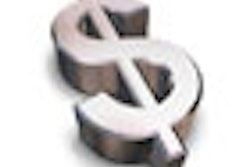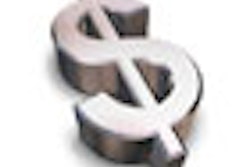
U.S. dentists' income continued to slide through the third quarter of 2009, the fifth straight quarter of decline, according to a survey by the ADA. And further evidence of a 2009 slump came this month from separate reports by accountants and a marketing firm.
Of the 1,552 dentists who responded to the ADA pollsters between October 12 and 21, 62% said that their net income had decreased during the previous three months. That percentage was an increase over the 52% who said their net had fallen in the second quarter of 2009. (The report did not provide a margin of error.)
— David Goodman, Academy of
Dental Certified Public Accountants
An informal poll of dental accounting firms had similar results. "Dentists felt that they were working harder and making less money," stated David Goodman of the Academy of Dental Certified Public Accountants (ADCPA) in an e-mail to DrBicuspid.com. Goodman asked eight firms that belong to the ADCPA about their clients' net income for 2009 and found that four had experienced declines. "Many ADCPA firms found that the practices were doing more procedures, but these procedures were more basic rather than high-end."
But by the end of the year, there were signs that profits were picking up again. "Our fourth quarter was much better than the third quarter and better than the fourth quarter of 2008," he said.
A third survey, conducted by WPI Communications, of more than 260 dental specialists found that 37% had lower revenue for 2009 than 2008, while 31% had an increase. However, the survey found that 52% expect better returns in 2010. (This survey also did not report a margin of error.)
The ADA survey found even more optimism: 69% of respondents thought that economic conditions for their practice would improve in 2010.
But the bad news for 2009 spanned almost every category of dentists' businesses, the ADA found. A majority reported lower gross billings, collections, treatment acceptance rates, and numbers of new patients, and a higher number of open appointment times.
Cut costs
Rising expenses may be reducing net income even for those dentists who had been able to maintain a steady gross, according to Goodman. "The cost of employees is up," he said. "Some dentists gave raises, and they had no way of recapturing that. But even if you didn't end up giving your staff a raise, you could end up spending more money."
That's because costs for continuing education and for health, workers' compensation, state unemployment, and disability insurance have increased in many states.
To cope with these changes, Goodman recommends that dentists look for less expensive plans. For example, his own accounting practice recently switched to a high-deductible health insurance plan for employees with lower premiums. The firm pays the employees' deductibles as well as premiums -- $2,500 for single people and $5,000 for others -- but still has saved thousands of dollars.
To save money on continuing education for employees, check whether your state allows you to pay the employees reduced wages for the time they spend in class, he advised. Many do.
Market more
To compensate for falling revenues, dental firms need to market their practices more aggressively, Goodman said. For example, dental offices should ask patients for referrals if they don't already do so.
The WPI Communications survey found that a majority of the specialists surveyed planned to spend more on direct mail, newsletters, brochures, print advertising, and Web sites next year. The only category of marketing in which they expected to cut back was on Yellow Pages advertisements.
As evidence that the right approach can increase revenues, Goodman noted that younger dentists were less likely to report decreased revenues in the ADA survey. "They market the right way," he said.
Goodman painted the picture of a successful dentist who is both tough and optimistic, ruthlessly scrutinizing expenses, insisting on prompt payment from patients hurt by the downturn, and looking ahead with a bright eye.
Gloom about the economy can prove self-fulfilling, he said. "If you hear that it's bad, and you think it's going to be bad, then it's going to be bad."
Copyright © 2010 DrBicuspid.com



















